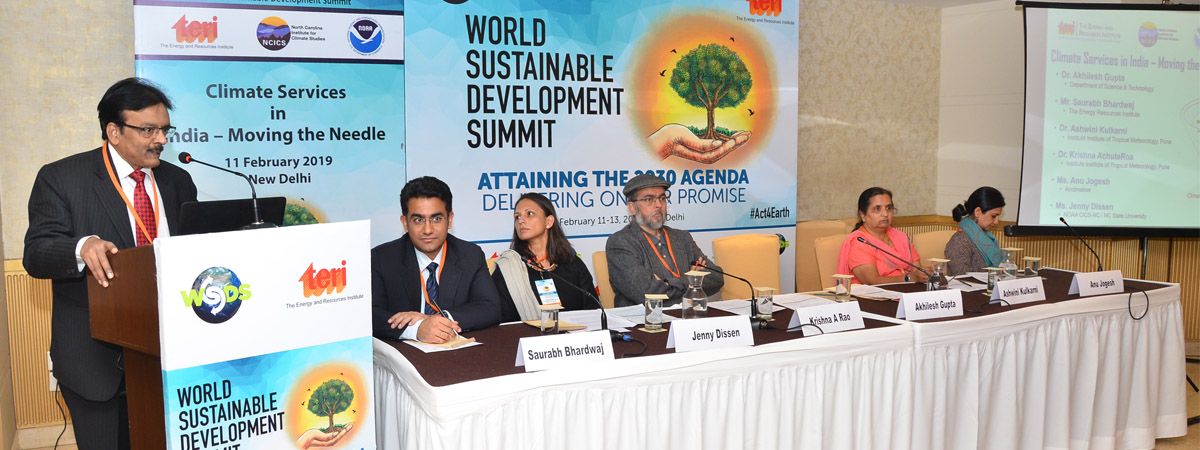Data-backed climate services will enable climate-smart decisions

It is possible to analyse data sets of climate trends, both historic and recent, to predict and project extreme climate events and their impact on disaster reduction, agriculture and food, health, and water. Further, the degree to which climate services are deployed can enable actionable climate-smart decisions. This was the theme of the Day 1 session titled 'Climate Services in India – Moving the Needle'.
Mapping vulnerabilities
Anu Jogesh, Policy and Governance Lead, Acclimatise Group, explained that though climate information is often created for governments, it has seen very limited real usage by them. This is due to perceived lack of utility; difficulty in recognising state-specific climate risks, as well as gaps in translating climate information into an easily understandable language and format. Further, often the data presented is not clearly actionable, adding uncertainty to decision-making.
Understanding these challenges, she said Partnerships on Resilience and Preparedness (PREP), the first public-private-partnership to use a data-driven approach to build climate resilience, is now bridging the gap between data and its implications for key sectors. PREP can integrate and visualise data like global and local observations, climate change, and socio-economic data on a single open-access online map. Capable of visualising changes in trends such as rising temperatures and floods, in correlation with socio-economic trends like population, tourist hotspots and more, PREP enables users to use climate services to create a "composite vulnerability”. Such an evidence-based approach, she said, can be used to climate-proof sectoral policies and projects, and guide state action plans on climate action as mandated by the Ministry of Environment, Forest and Climate Change (MoEFCC).
Climate services and 1.5 °C
A similar case study of the applications of climate services was delivered by Dr. Ashwin Kulkarni, Indian Institute of Tropical Metrology, Pune, about the 'Hindu Kush - Karakoram - Himalayan" (HKKH) region The HKKH climate data, she explained, demonstrates that the region is undergoing rapid change due to stressors like climate change and human activities like globalisation, infrastructure development, migration, tourism and urbanisation. The region’s warming is more than the global average, due to which glaciers are shrinking fast, increasing meltwater and therefore the probability of floods and landslides.
While the world has been warned to limit global warming to 1.5°C by the United Nations Intergovernmental Panel on Climate Change (IPCC), even this is too much for HKKH. The region is set to see warmth increase much more than the global mean, and more rapidly at higher elevation. The findings, she said, used trends, simulations and historical data across decades. Considering the stated aim of Sustainable Development Goal 13 -- “Take urgent action to combat climate change and its impact" – climate services can contribute significantly to strengthening resilience and adaptive capacity to climate-related future risks. She concluded by saying that such climate change adaptation measures must be integrated into national policies, strategies, and plans.
Indicating the urgency of adopting climate services based on modelling climate data, Saurabh Bhardwaj, The Energy and Resources Institute (TERI) said while the data shows a clear-cut increase in India's warming, it also reveals climate-resilient pathways that can help frame policies. Therefore, he said, there is a need for regional-level modelling of climate data, to create climate resilient infrastructure services. Downscaling further, he said sound climate information will be needed for local-level risk assessment at the level of Urban Local Bodies.
Reiterating Jogesh's point about creating relevance for climate services data, Mihir Mathur, System Dynamics Modeller and Founder, DESTA Research LLP, said that people must be enabled to take their own climate-informed decisions. Such capacity building, enabled by interactive tools such as apps, he added, can aid India's 100 million farmers.